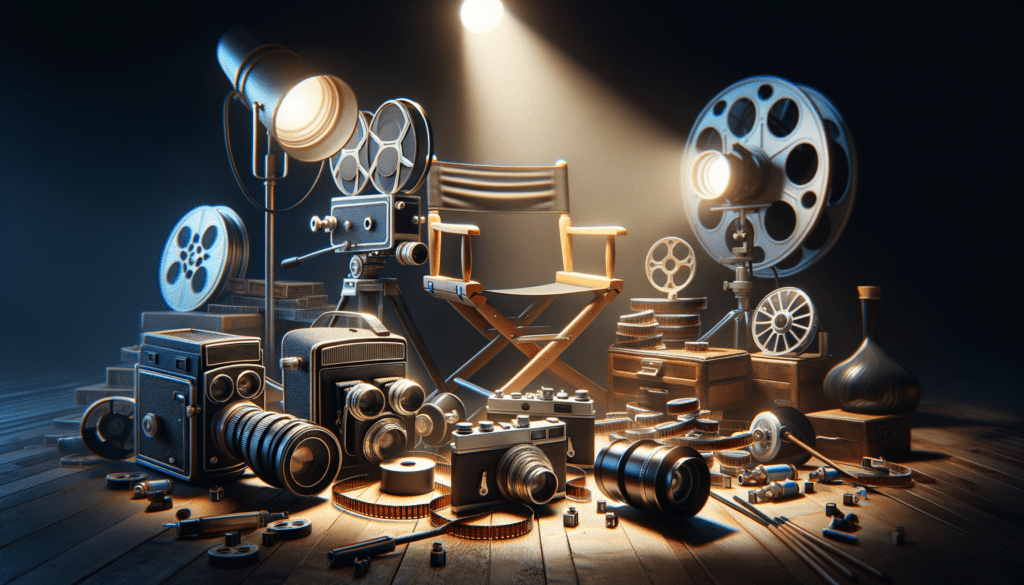The Significance of Cinematography in Film Making
Cinematography is often described as the art of visual storytelling. It is a pivotal component of filmmaking that involves capturing the essence of a story through the lens. As the saying goes, “a picture is worth a thousand words,” and in the world of cinema, this couldn’t be more accurate. Cinematographers are responsible for translating the director’s vision into visual art, using lighting, framing, and camera movement to evoke emotions and convey narratives. The importance of cinematography in filmmaking cannot be overstated, as it is the element that brings a script to life, creating a visual language that speaks to audiences worldwide. Aspiring filmmakers and enthusiasts often seek cinematography courses to gain a deeper understanding of this craft, learning the technical skills and creative insights required to excel in this field.
Types of Cinematography Courses Available
Cinematography courses come in various formats, catering to different skill levels and interests. From short workshops to full-fledged degree programs, these courses offer a range of opportunities to learn and grow in the field. Some of the most common types of cinematography courses include:
- Workshops and Short Courses: Ideal for beginners or those looking to enhance specific skills, these courses typically last from a few days to a few weeks.
- Certificate Programs: These programs provide a more comprehensive understanding of cinematography, usually spanning several months.
- Degree Programs: Offering in-depth knowledge and practical experience, degree programs in cinematography are often part of a larger film or media studies curriculum, lasting from two to four years.
Each type of course has its unique advantages, allowing students to choose based on their career goals, time commitment, and budget. Whether you’re a novice or an experienced filmmaker, there’s a course out there to suit your needs.
Core Topics Covered in Cinematography Courses
Cinematography courses cover a wide range of topics, ensuring that students gain a holistic understanding of the field. Some of the core topics typically included in these courses are:
- Camera Techniques: Understanding different types of cameras, lenses, and their functions is fundamental. Students learn about shot composition, camera angles, and movement to create compelling visuals.
- Lighting: Lighting is crucial in setting the mood and tone of a scene. Courses teach students how to manipulate natural and artificial light to achieve the desired effect.
- Color Theory: The use of color can significantly impact a film’s narrative. Cinematography courses delve into color grading and correction to enhance storytelling.
- Post-Production: Editing and post-production techniques are essential in refining the final product. Students learn how to work with editing software to achieve seamless transitions and effects.
These topics provide a foundation for students to develop their unique style and approach to cinematography, preparing them for various roles within the film industry.
Choosing the Right Cinematography Course
Selecting the right cinematography course can be a daunting task, given the plethora of options available. Here are some factors to consider when making your decision:
- Course Content: Ensure the course covers the topics you’re most interested in and aligns with your career aspirations.
- Faculty: Experienced instructors with industry knowledge can provide valuable insights and mentorship.
- Facility and Equipment: Access to state-of-the-art equipment and facilities can enhance your learning experience.
- Alumni Network: A strong alumni network can offer networking opportunities and career support post-graduation.
Researching and comparing different courses based on these criteria can help you make an informed decision, ultimately leading to a fulfilling educational experience.
The Future of Cinematography and Its Educational Pathways
As technology continues to evolve, the field of cinematography is constantly changing, offering new opportunities and challenges. With the rise of digital filmmaking, virtual reality, and other advancements, cinematographers must stay updated with the latest trends and techniques. Cinematography courses play a critical role in preparing students for the future, equipping them with the skills needed to adapt and thrive in this dynamic industry. By fostering creativity and technical proficiency, these courses ensure that the next generation of cinematographers is ready to push the boundaries of visual storytelling.
In conclusion, cinematography courses provide an invaluable foundation for anyone interested in the art and science of filmmaking. Whether you’re embarking on a new career or looking to enhance your existing skills, these courses offer the knowledge and experience needed to succeed in the ever-evolving world of cinema.





